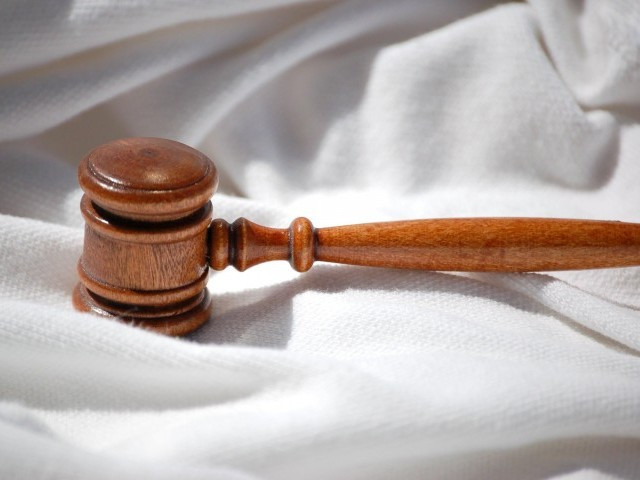Judges’ appointment: Bar chapter, lawyers question panel’s role
Four petitions filed in SHC against the committee’s decision to reject judicial commission’s recommendations.

This is the second time the SHC has had to settle a matter regarding the committee’s rejection of the judicial commission’s recommendations. PHOTO: FILE
The legal fraternity has once again challenged the role of the parliamentary committee over the appointment of judges.
The Sindh High Court Bar Association’s (SHCBA) Karachi chapter had on Friday challenged the committee’s February 10 decision, which rejected the judicial commission’s recommendations regarding the appointment of Justices Nadeem Akhtar and Muhammad Shafi Siddiqui as permanent judges of the SHC.

On Saturday, another three petitions on the same issue were filed in the SHC by the SHCBA Sukkur chapter,former Supreme Court Bar Association (SCBA) president Munir A Malik and former SHCBA Karachi chapter president Anwar Masoor Khan.
Justices Akhtar and Siddiqui were appointed as additional judges of the SHC for a period of one year in March last year. The judicial commission on January 26 recommended their names to the parliamentary committee on the appointment of judges for confirmation as permanent judges of the SHC. But the committee, on February 10, rejected the commission’s recommendations, claiming that Akhtar and Siddiqui had not paid their income tax.
The petitioners maintained that Akhtar and Siddiqui had worked ‘diligently, honestly and competently’ during their tenure as additional judges of the SHC.

But they pointed out that the parliamentary committee dropped their names, disagreeing with the judicial commission’s recommendations, without issuing “any show cause notice or giving a plausible reason”.
The petitioners also submitted photocopies of the two judges’ tax returns and claimed there could be ‘no possible reason’ for rejecting their names.
“An incumbent judge is bound to pay income tax before being elevated… As such, the question of them (Akhtar and Siddiqui) being taxpayers or not does not arise,” they explained. They also argued that the committee could not overturn the judicial commission’s recommendations without providing its reasons in writing, which were absent in this case.
The petitioner’s maintained that as such, the parliamentary body’s decision violated both section 24A of the General Clauses Act – which states that an authority, office or person must exercise its power fairly and justly, and provide adequate reasons for doing so – and article 10A of the Constitution, which guarantees a right to a fair trial.
Alleging that the committee and the Ministry of Law, Justice and Parliamentary Affairs were ‘bent upon undermining the independence of the judiciary’, they urged the court to nullify the former’s decision and confirm the appointments of Akhtar and Siddiqui. They also asked the court to suspend the committee’s decision till the disposal of the petitions in order to allow the two judges to perform their duties at SHC.
Meanwhile, the court has directed the attorney general, the law and justice ministry, and the secretary of the parliamentary committee on the appointment of judges to file their comments regarding the matter.
This is the second time the SHC has had to settle a matter regarding the committee’s rejection of the judicial commission’s recommendations.
In June last year, an SHC bench suspended the parliamentary body’s decision to reject the appointments of two additional judges – Justices Ghulam Sarwar Korai and Irfan Sadat Khan – based on reports from intelligence agencies.
The Supreme Court upheld the SHC verdict later the same year, dismissing two petitions filed by the federal government.
The high court already faces a shortage of judges – only 25 judges currently serve in the court against the sanctioned strength of 40. In case the court upholds the parliamentary committee’s decision against Justices Akhtar and Siddiqui, the number of judges serving in SHC will drop to 23.
Published in The Express Tribune, February 17th, 2013.



















COMMENTS
Comments are moderated and generally will be posted if they are on-topic and not abusive.
For more information, please see our Comments FAQ